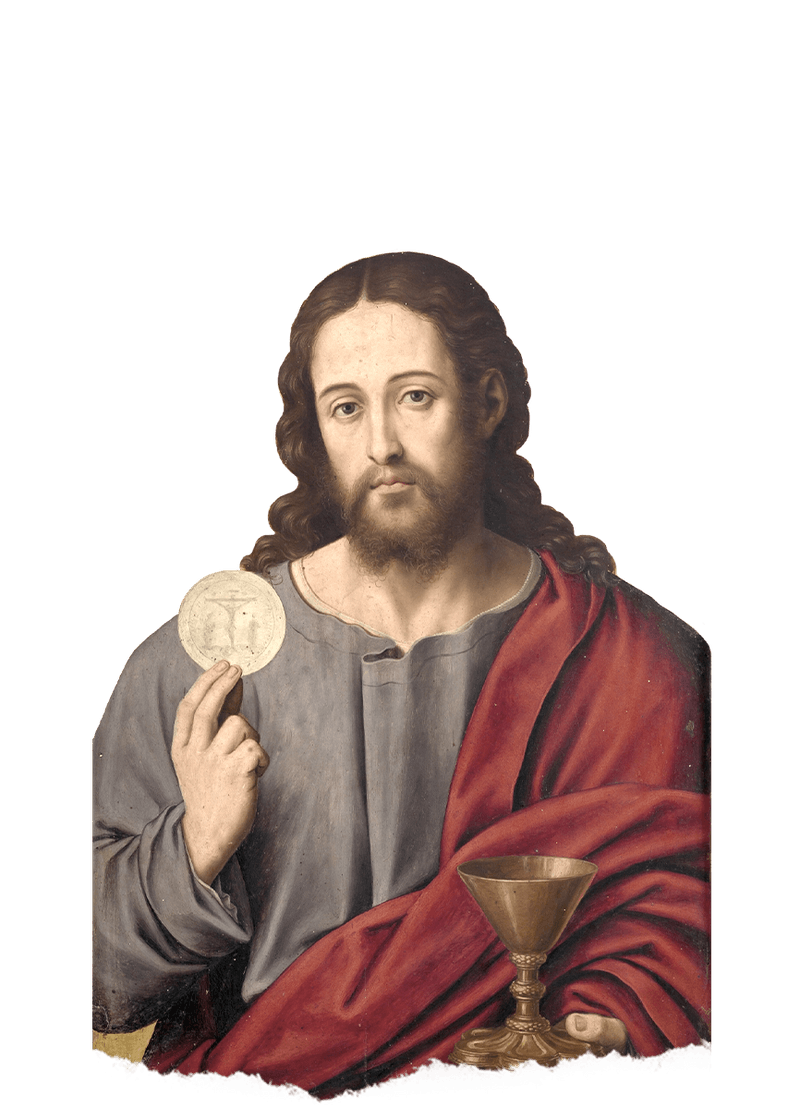"No servant can serve two masters. He will either hate one or love the other, or be devoted to one and despise the other. You cannot serve both God and mammon" (Luke 16: 13).

On the opening day of the religious education program – the most waited day for children after a long hiatus, also Catechetical Sunday, it is a little awkward but intriguing to ponder on the parable of the dishonest steward who was commended in the end for acting prudently and responding appropriately. How I wish we can omit the word dishonest as it sounds scandalous and yet, this is Jesus’ way of telling us about eternal dwellings. God can break in and transform us amidst a hopeless scenario.
The gospel is a story of an absentee landowner which was a normal practice in the first century agricultural setting whereby a wealthy individual entrusts his property to a trusted person, who put him in charge of all his possessions and departs for no man’s land. The master heard about a critical situation and thereby demanded an account or explanation. The steward in turn wasted no time discerning and carefully planned the best possible response. This is by far the reason why he salvaged himself which resulted to his approval rating going up much to his surprise. Remember this is a culture that didn’t have an insurance nor social safety net. Your only recourse is your network of friends/cronies if they support you. Otherwise, you are in deep trouble. The steward knew he was in a difficult spot between a rock and a hard place, but he dealt with the crisis cleverly by summoning his master’s debtors one at a time without witness in their business dealings and asked each of them to present their outstanding accounts. Instead of demanding them to settle in full, that is, the principal amount owed to the master, he told them to lower it. The first debtor originally owes hundred jugs of olive oil. He said, “take your bill, sit down quickly, and write one for fifty”. The second debtor owes a hundred containers of wheat. He said, “take your bill, sit down quickly, and write one for eighty”. I bet both was speechless at what they heard. Considering its highly valuable, that’s an incredible bargain. What was the reason for the huge reduction? Perhaps, by reducing the principal amount owed, the difference being his customary cut/commission, he could gain back the trust of his master. If this were his original intent to get himself out of the mess, it worked. Don’t give up. Figure something out. Even though the promissory note certainly was less favorable to the employer, it gained a positive response. By not making anything out of the business deal, that is, sacrificing his profit, his master praised him first by accepting his messy situation and second, by acting shrewdly. If you know you messed up, accept it, make peace, move on, figure something out and don’t be in denial. This is exactly what the steward did.
Because of this, the landowner commended him for having the qualities, skill, and character of a manager. There is no one size fits all. He approved his determination to survive the worst day of his life. He praised the steward for a smart move even to the point of risking it all if only to rectify the situation. There are questions that remain unanswered which we will skip for now, but the point is that we should not miss the forest for the trees. The best explanation of the parable lies towards the end, “No servant can serve two masters. He will either hate one or love the other or be devoted to one or despise the other. You cannot serve both God or mammon” (Luke 16:13). By sacrificing his share of the profit, the steward did everything he can to get his job back. mammon is a Hebrew word meaning, in which one trusts. It means property or anything that is capable of possessing us other than God. It is a powerful idol that can attract human allegiance and demand worship as if it were a god. We can be absorbed, or we can let mammon absorb and possess us without us knowing it. The worship of wealth and the clinging to one’s possessions as if it were the be-all and end-all of everything is a separation from God and a rejection of God. There is no middle ground. mammon is incompatible with God. The prophet Amos, the harbinger of social justice exposed social inequalities whose harsh comments take us to the gospel reducing the poor and the needy to mere opportunities for profit and wealth.
Life’s journey brings us two roads. We are constantly faced with series of options before making difficult choices: God or mammon? good or evil? fidelity or infidelity? Grace or sin? Sunday Mass or errands, chores, rest, etc? Sadly, what was once non-negotiable has become just one of many options. I hope that with the example of the shrewd manager, time will come these second options won’t stand a chance. Religious formation is a long-term investment. In fact, it is a lifetime of forming our consciences. Amen.
PARISH BLOG



